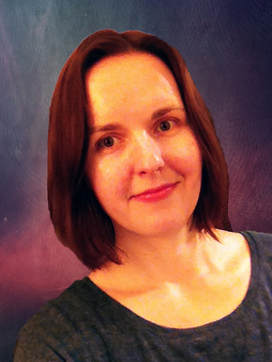 Writer friends of mine often talk about “the olden days” when literary giants used to scribble out their manuscripts and fairy godmothers known as publishers took care of all that pesky publicity stuff. All Austen, Fitzgerald and Hemingway had to do was show up, sign books and bask in the adulation of their fans. OK, I’ll be the first to admit we might be looking at the past through rather rosy-colors lenses, but, with the rise of print-on-demand platforms, both indie and traditionally published authors are competing for the same audiences and need to employ new tools and techniques to get eyeballs to read your latest masterpiece. This has led to the creation of the Launch Team, a small cadre of loyal fans who read your work in advance and use their personal and social media network to boost interest (and eventual sales) of your work. People make this sound easy, but rest assured it is not. Basically, you need to recruit friends that will act like a literary Navy SEAL team. You want people who like your work and you enough to spread the word but do so for little pay or few rewards (unless you have the budget for that, which you probably don’t). You are, in essence, asking people for a favor with the hope they will help create the all-powerful “buzz” your book requires for success. My first book did fairly well, but, because of some mistakes on my part, book two sold rather poorly. This time around, I’m hoping that a little advanced planning, plus the kindness and generosity of my friends, this book launch will enjoy a bit more success. Next week we’ll find out if this hare-brained scheme actually works.
0 Comments
 Science Fiction always seems to fall into two camps: an action/love story with scant (and sometimes questionable) sci-fi details thrown in or a jumble of so many technical specs that you forgot the two main characters are locked in a death battle 200 miles above the planet's surface. Thankfully Vera Brook, a scientist-turned-writer does not succumb to these faults. Her older YA novels Sand Runner and Cage Runner are fast-paced action stories with just the right amount of scientific detail for the story to flow and make sense. When did you first realize you were a storyteller? Good question. I’ve been a bookworm ever since I was a kid. If you love reading, chances are at some point you will reach for a pen and start writing. I’ve kept journals with story ideas ever since middle school. So that itch to make up stories was always there. I was also an English major in undergrad and took some creative writing classes where we wrote and critiqued each other’s stories. But I didn’t try to write a novel until years later, after I switched my career path to science. I guess it’s a sign that I’ve always been a storyteller at heart. What do you love about the writing process? Writing is an amazing activity. You start with nothing but a blank page and your imagination & life experience, and you can create whole new worlds. I love that creative freedom, and the feeling that there are no limits to what I can imagine and write about. I also love the surprises that come in the process of writing fiction. For me, writing is half careful, deliberate construction, and half a discovery process. The initial idea for a story or a novel can come from anywhere, and that’s always a thrill. (My advice: Write all the story ideas down. You may think you will remember them, but you won’t.) But after the initial idea, it can take me a good while to figure out the logic of the story and to fill in the details, and the final draft can be completely different from that original spark of inspiration. I also love creating—or discovering—my characters. They feel very real to me. Sometimes they even refuse to do what I want them to do, and I have to listen to them and change the story accordingly, or it won’t work. It’s a very strange experience, being bossed around by imaginary people you created, but I’m sure many writers can relate to that. Finally, I continue to be amazed by how mysterious the writing process is. Where do our ideas really come from? How do we put them together to weave a story? How do we switch from the free creative writer that puts the words down on the page, to the logical, critical editor who beats them into shape and fits them into a careful story structure? Language itself is a fascinating phenomenon and very closely tied to our humanity. I’m trained in neuroscience, and neuroscience tries to understand how everything we do works at the level of brain processes, down to neurons firing and neurotransmitters crossing the synapse. I don’t think we can explain anything as complex as creative writing, or language in general, at the neuronal level yet. Some clues may actually come from computer science and the development of AI that assists writers in either writing or editing their work. So I look forward to the breakthroughs that will come in the near future. I love writing—but it’s also the hardest and most frustrating activity I’ve ever done. So I wouldn’t mind an AI assistant who would help me get all the stories in my head down on paper faster and with less of a struggle. What is the hardest part of being a writer? All of it! The same things that make writing amazing also make it incredibly difficult. You are free to create whole new worlds, and write any story you want—but all of it takes a great deal of work, frustration, and trial and error. There is also no guarantee that your book will resonate with readers, or even be discovered by the readers who might enjoy it. So every book you write is a huge leap of faith, and you don’t know what’s going to happen at the end. All you can do is write the best book you can, keep improving your craft with every book after that, and not let silence or negative reviews discourage you form writing. I’m an indie writer—meaning, independently published—so discoverability is also a huge challenge. Indie authors are their own publishers. In addition to writing the book, I also format it for print and ebook, create my own covers, distribute the book on different platforms, and market it. (Although I do work with a professional, paid editor, to make sure my books are written to professional standards.) I actually enjoy all these publishing tasks, and I’m really glad I had to learn them. But marketing my books is difficult, because I have a very small budget to work with, and not much time to spare. (I have a full-time job which pays my bills, and I would rather spend my free time on writing than on marketing.) Still, this is a very exciting time to be an independently published author, and the difference between indie writers and traditionally published writers blurs a little more every day! For instance, the Science Fiction and Fantasy Writers of America (SFWA) has opened its doors to indie writers becoming members, and I’m sure other professional writing organizations are doing the same. And more and more indie writers can make a living on their books, often by developing strong online platforms and turning their books into multiple streams of income, which is great to see and very encouraging. The indie writing community is also very open & supportive, and that makes a huge difference because writing can be pretty lonely otherwise. It’s not a zero-sum game at all. We are all rooting for one another, and celebrating one another’s successes. More writers means more great books to read, and what’s not to love about that? Where do you find your inspiration? A story idea can come from anywhere—a dream, a scientific article I read, an experience I had as a kid, an overheard conversation, and, of course, other books. Also, giving yourself a break from writing to “recharge” helps. Whenever I get stuck in my writing, I go for a walk and just let my mind roam. It’s like you give your conscious mind a rest, but your unconscious brain keeps working on the problem, and I often have a solution by the time I come back from the walk. A lot of my writing is also inspired by my neuroscience training, and my interest in science and technology in general. I write science fiction, so there is usually some science and technology as the background for the story. For instance, in the Sand Runner series, one such technology is bionic prosthetics, or the new generation of prosthetic limbs that are directly linked to and controlled by the person’s nervous system. Such prosthetic limbs already exist and people use them every day, and they will get better and better, and make a huge difference to thousands of people. But it’s amazing to think about how much knowledge about the human nervous system went into designing such prostheses. So both the science and the applications are fascinating and a great source of story ideas. What are you working on right now? I’m usually juggling several projects. It’s probably not the fastest way to finish anything. But I find that it helps, because if I get stuck on one project, for whatever reason, I can switch to another and work on that. Right now my main project is book 3 in the Sand Runner series. It’s challenging because the story and the cast have gotten bigger and more complicated, and I have to be careful not to write myself into a corner. But I love these characters, both the “old” ones from book 1, like Kai, Emily, and Neen, and the newer ones, who appear only in book 2 or book 3. So it’s always a thrill to enter this world and to add another chapter to their story. I hope to finish, edit, and publish book 3 by the end of this summer. But I’m not a very fast writer, so we’ll see. I’m also working on some short stories, some tied into the Sand Runner series, others standalones. And I have, let’s see, four other series in development. Two of them are YA science fiction. The other two are middle grade (MG), and start more in the vein of magical realism but will “grow up” to be science fiction as the characters get older. To keep up with the Vera's latest adventures, check out her website, or follow her on Twitter or Pintrest. |
AuthorI've been writing stories and taking photos since I was old enough to hold a pencil and stand behind a tripod. Archives
February 2024
Categories
All
|
 RSS Feed
RSS Feed